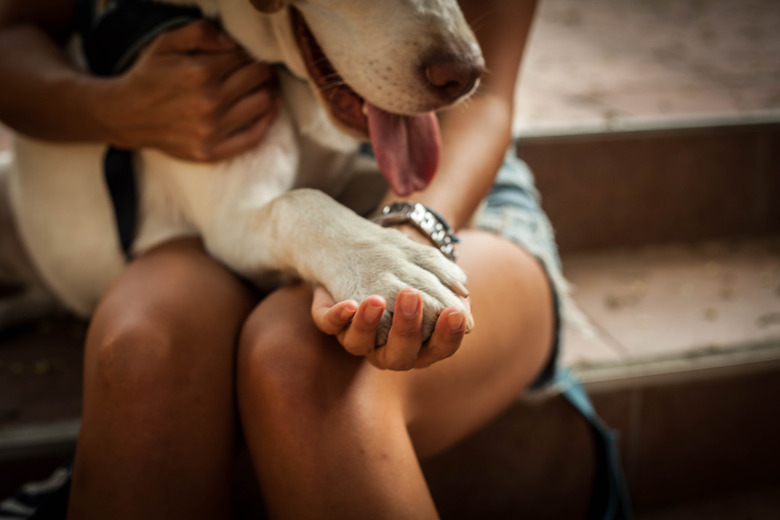Home Remedy For Itchy Paws
Itchy paws can be a common occurrence for dogs. Since their feet come in contact with many elements on a daily basis, it's not uncommon for irritation to occur. Regularly grooming and cleaning a dog's paws can reduce itchiness and irritation, but if the condition is chronic or your dog seems uncomfortable, contact your veterinarian for advice and a potential diagnosis. While your veterinarian can recommend treatment for itchy paws in dogs if this is an ongoing problem, home remedy solutions exist and can give your canine some relief from the discomfort.
Causes of itchy dog paws
Causes of itchy dog paws
Dogs lick to groom themselves, so a little cleaning is not necessarily a cause for concern. If you notice your dog frequently licking his paws and paw pads or constantly cleaning the same foot, he is likely feeling itchy and irritated. It may be caused by fleas, another parasite, or by your dog having exposure to poison ivy. If you think your dog has been exposed to a poisonous plant, contact pet poison control and give him a deep-cleaning bath.
Itchy paws can also be caused by improper grooming on the owner's part. If your dog gets into a mud puddle or walks through grass, wiping his paws when you return home can reduce irritation. Dog booties may help prevent future exposure to irritants while on a walk, especially if your dog has allergies to grass or pollen, but make sure they fit properly and are not too tight on your dog's feet. Bacterial and yeast infections can also be the culprit behind your pet's paw discomfort. A fungus, like ringworm, causes an itchy rash and is common on a dog's foot pads and other areas of the skin.
Diet can also cause your canine to have discomfort in his paws. Your pet may be missing vital nutrients, like omega-3 fatty acids and healthy complex carbohydrates, or he could be allergic to his food. Your veterinarian can do elimination tests to figure out the ingredients to which your pet is having a reaction and can recommend a different formula that will be more tolerable for him.
Dog itchy paws home remedy
Dog itchy paws home remedy
For chronic dog paw itching, your veterinarian can prescribe medication or over-the-counter topical ointment, but there are many items around the house that can also help soothe your scratchy pet. Make your pet a warm bath of chamomile and green tea or use colloidal oatmeal in the tub to soothe her itchiness and discomfort. A paste of equal parts baking soda and water can be applied to irritated paws. Leave on the mix for 20 minutes to provide relief and reduce any swelling and redness and rinse off completely afterward.
Apple cider vinegar can help disinfect and clear up fungal or bacterial infections. To use it, mix one part vinegar and one part water in a spray bottle and mist it on impacted areas. Do not apply this mix to any wounds, however, as this can cause your dog a lot of pain. Feeding your dog any type of plain, unsweetened yogurt can help balance her good bacteria to clear up skin issues and yeast infections.
Coconut oil is another household item that can be used as a treatment for itchy paws in dogs. Since coconut oil has anti-bacterial and anti-inflammatory properties, this ingredient can help heal and reduce irritation on your dog's paws from dryness. Apply it directly to your dog's irritated paws to soothe them and help speed healing. It can be added to her food to reduce skin dryness, but this should be done in moderation since it is high in fat and cholesterol. Consult your veterinarian before using any home remedy and watch for irritation or reaction since your dog could be allergic to anything new you're introducing to her daily regimen.
References
- American Kennel Club: Why Does My Dog Lick His Paws?
- American Kennel Club Pet Insurance: 5 Natural Remedies to Help Your Itchy Dog
- American Kennel Club: Dog Itching and What Could Be Causing It
- Animal Health Foundation: 6 Natural Remedies for Your Dog's Itchy Skin
- Small Door Veterinary: Does My Dog Need to Wear Boots?
- Healthline: Is Coconut Oil Good or Bad for Dogs? The Surprising Truth
- Rock Villa Canine Care: The Signs That Your Dog is Struggling with Itchy Skin

